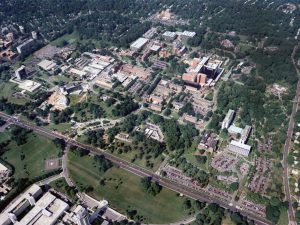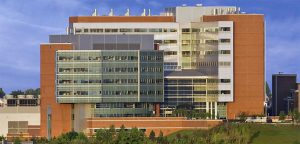Summer Student Orientation
Intramural Research Program
Stephen J. Heishman, Ph.D., Director
Office of Education and Career Development
Room 2A641, ext. 2458
heishman@nih.gov
Mentoring
- What is a mentor?
- Knowing a good mentor when you meet one
- Seek out more than one mentor
- Communicating your research findings
- Where do you want to be in 3-5 years?
Conducting Ethical Research
- Responsible Conduct of Research course
- Documentation of data
- Prohibited research
- human fetal tissue
- human cloning
- Can’t leave with govt. records, equipment
National Institutes of Health
The mission of the NIH is to uncover new knowledge that will lead to better health by:
- Conducting research in its own laboratories (intramural)
- Providing support for research conducted at universities, medical schools, and research institutions (extramural)
- Training research investigators
NIH consists of 27 Institutes and Centers
NEI, NCI, NHLBI, NLM, NCCAM, CIT, CC, NHGRI, NIA, NIAAA, NINDS, NIBIB , NIAMS, NINR, NIAID, NICHD, NIDCD, NIDCR, NIDDK, NIDA, NIEHS, OD, NIMH
Extramural only:
NCMHD, CSR. FIC, NCRR, NIGMS
NIH has 75 buildings on 322 acres in Bethesda, Maryland

An Aerial view of the NIH main Campus
National Institutes of Health Biomedical Research Center
Baltimore, MD
Intramural Research Programs
– NIDA
– NIA

The Baltimore Biomedical Research Center
NIDA Intramural Research Program Research Branches
- Clinical Pharmacology & Therapeutics
- Neuroimaging
- Behavioral Neuroscience
- Integrative Neuroscience
- Molecular Targets & Medications Discovery
- Cellular Neurobiology
- Molecular Neuropsychiatry
How many researchers are at NIH?
- 1250 intramural research laboratories
- 1000 summer students
- 500 postbaccalaureate trainees
- 100 medical students
- 300 graduate students
- 4,000 postdoctoral fellows
- 200 staff clinicians
- 800 staff scientists
- 300 tenure-track investigators
- 1,200 senior investigators
Intramural Training Programs
Summer
- SIP
- SRFP
- Undergraduate Scholarship Program
Postbaccalaureate
- Postbaccalaureate IRTA
- NIH Academy
- Technical IRTA
Graduate
- Graduate Partnerships Program
- Year-off IRTA
Postdoctoral
- IRTA – 5 yrs
- Visiting Fellow – 5 yrs
Postbaccalaureate Program
Postbaccalaureate IRTA
- Plan to pursue MD, PhD, or MD/PhD
- Continuous review of applications – no deadline
- Eligible for 3 years after Bachelor’s degree or 6 months after Master’s degree
- Spend up to 2 years at NIH with possible 3rd year extension
NIH Academy Program
- Focus on health disparities
- Fellowship or certificate
What can you expect?
- Learn scientific skills
- Gain experience in presenting scientific results
- Develop an understanding of the ethics of biomedical research
- Gain info on applying to graduate or medical school
- Be a member of basic science or clinical research teams
- Receive close mentoring from senior scientists
working on the frontiers of biomedical research - Attend lectures and seminars on the latest advances in addiction research
- Present your work at the annual Poster Day
Useful Web Sites
Eliminating Stigma Series
Navigating your life without losing yourself
A panel discussion with:
- Tom Gregoire, PhD, Ohio State University
- Maya Lakshman, Emory University
- Mark Schuster, MBA, Rutgers University
June 9, 2018
2:00 – 3:00 p.m.
BRC Atrium
